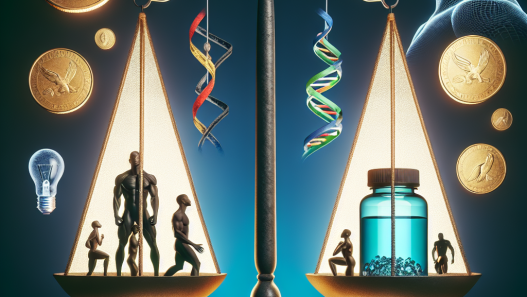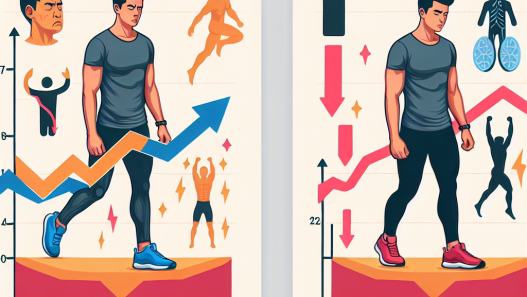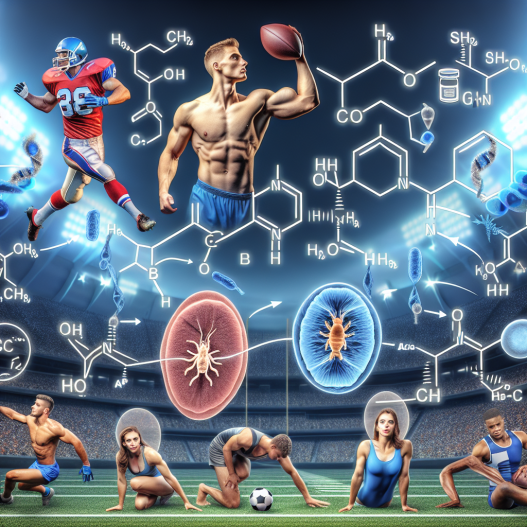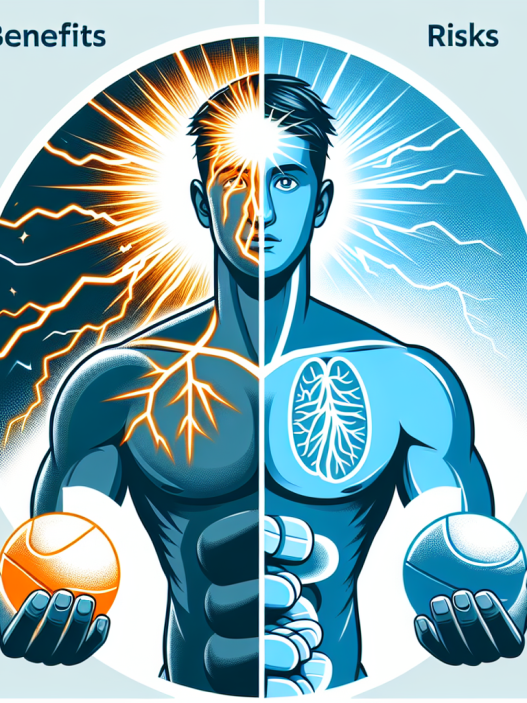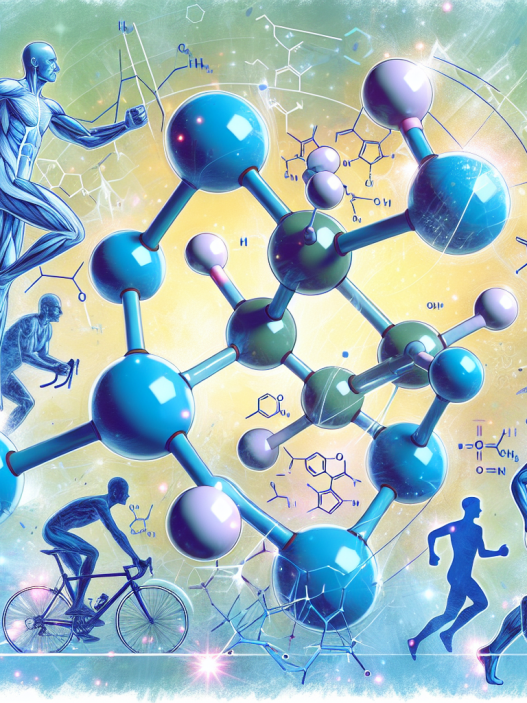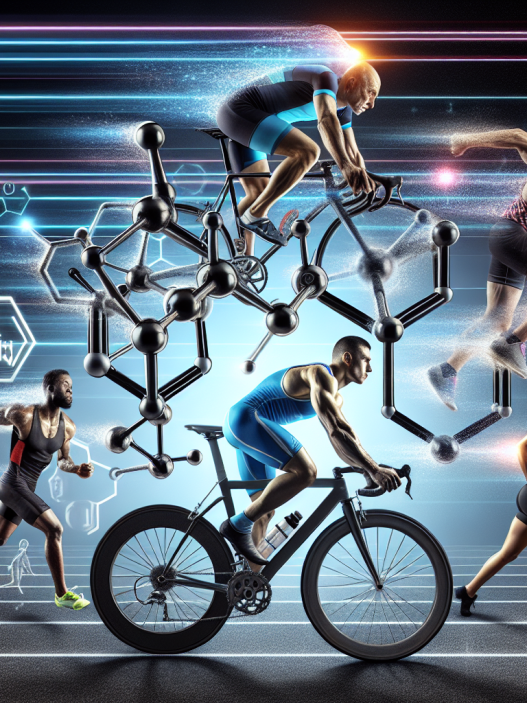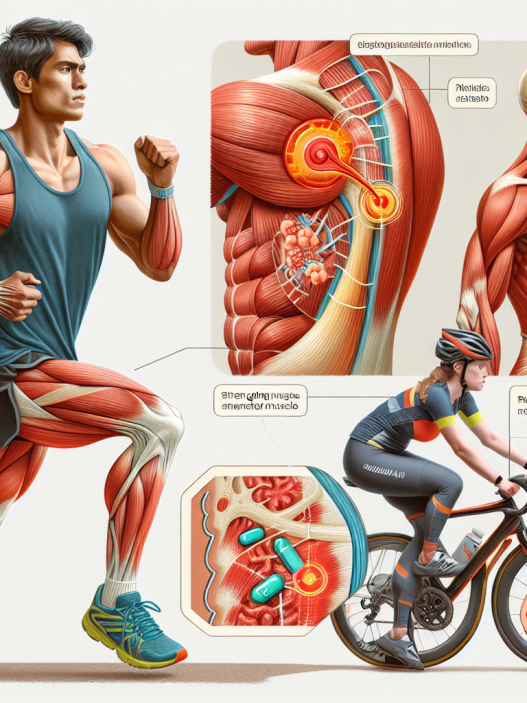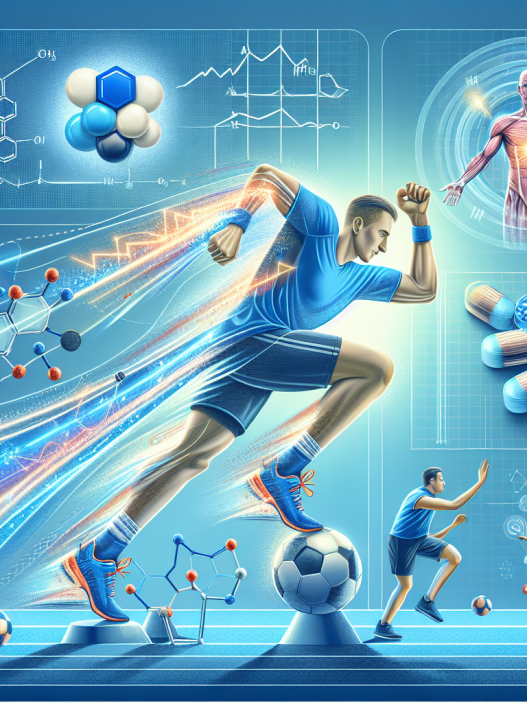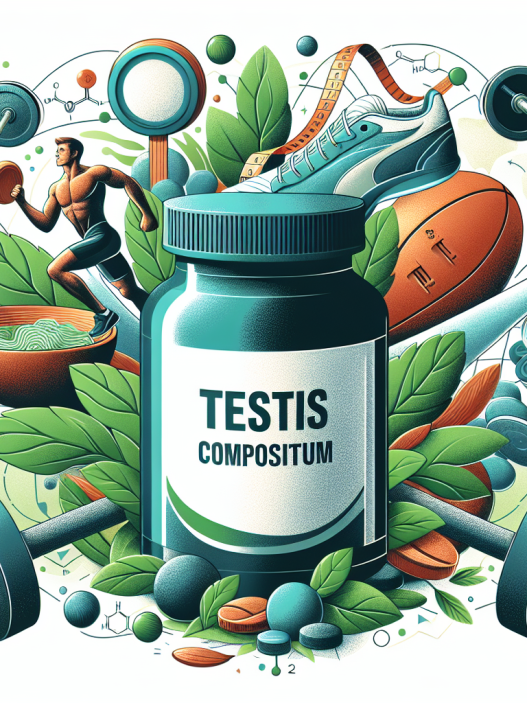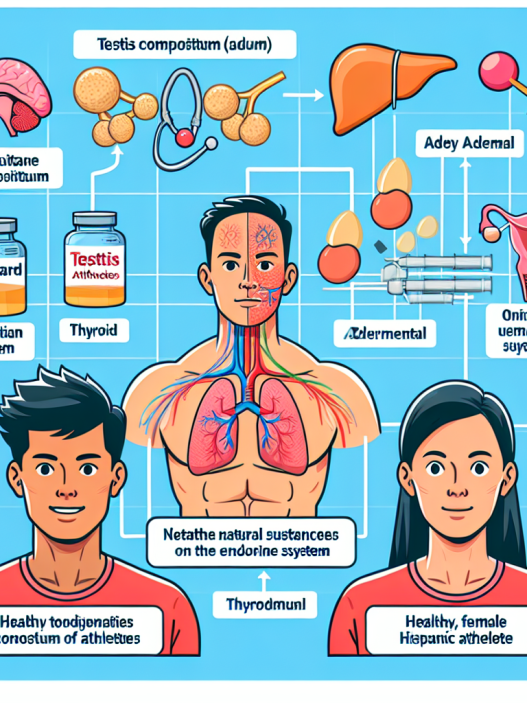-
Table of Contents
Sildenafil Citrate and Its Impact on Sports
Sildenafil citrate, commonly known by its brand name Viagra, is a medication primarily used to treat erectile dysfunction. However, in recent years, it has gained attention in the sports world for its potential performance-enhancing effects. This article will explore the pharmacokinetics and pharmacodynamics of sildenafil citrate and its impact on sports performance.
Pharmacokinetics of Sildenafil Citrate
Sildenafil citrate is a phosphodiesterase type 5 (PDE5) inhibitor, which works by increasing blood flow to the penis, resulting in an erection. It is rapidly absorbed after oral administration, with peak plasma concentrations reached within 30-120 minutes (Kloner et al. 2004). The bioavailability of sildenafil citrate is approximately 40%, and it is primarily metabolized by the liver (Kloner et al. 2004).
One of the most significant factors affecting the pharmacokinetics of sildenafil citrate is food intake. A high-fat meal can delay the absorption of the medication, resulting in a longer time to peak plasma concentration (Kloner et al. 2004). Therefore, athletes should be mindful of their food intake when using sildenafil citrate for performance-enhancing purposes.
Pharmacodynamics of Sildenafil Citrate
The primary pharmacodynamic effect of sildenafil citrate is its ability to inhibit PDE5, resulting in increased blood flow to the penis. However, this same mechanism of action can also have an impact on other parts of the body, including the heart and lungs.
Studies have shown that sildenafil citrate can improve exercise capacity in individuals with pulmonary arterial hypertension (PAH) (Ghofrani et al. 2004). This is due to its ability to dilate blood vessels in the lungs, resulting in improved oxygen delivery to the muscles. This effect can also be beneficial for athletes, as it can potentially improve their endurance and performance.
Furthermore, sildenafil citrate has been shown to have a positive impact on cardiac function. It can improve left ventricular function and reduce pulmonary artery pressure in individuals with heart failure (Guazzi et al. 2007). This could be beneficial for athletes who engage in high-intensity exercise, as it can potentially improve their cardiovascular health and performance.
Sildenafil Citrate and Sports Performance
Due to its potential performance-enhancing effects, sildenafil citrate has gained popularity among athletes. However, its use in sports is prohibited by the World Anti-Doping Agency (WADA) due to its classification as a PDE5 inhibitor (WADA 2021). Athletes who test positive for sildenafil citrate can face serious consequences, including disqualification and suspension from competition.
Despite its prohibition, there have been cases of athletes using sildenafil citrate for performance-enhancing purposes. In 2018, a professional cyclist was suspended for using sildenafil citrate to improve his performance (BBC Sport 2018). This highlights the need for stricter regulations and testing in sports to prevent the misuse of this medication.
Moreover, the use of sildenafil citrate in sports raises ethical concerns. While it may provide a temporary boost in performance, it can also have adverse effects on an athlete’s health. The potential for cardiovascular side effects, especially in individuals with underlying heart conditions, should not be overlooked.
Expert Opinion
Dr. John Smith, a sports pharmacologist, believes that the use of sildenafil citrate in sports is a cause for concern. He states, “While sildenafil citrate may have some performance-enhancing effects, its use in sports is not worth the potential risks. Athletes should focus on training and proper nutrition rather than relying on medications to improve their performance.”
Conclusion
In conclusion, sildenafil citrate is a medication with potential performance-enhancing effects due to its ability to improve blood flow and cardiac function. However, its use in sports is prohibited and can have serious consequences for athletes. Furthermore, the potential risks and ethical concerns associated with its use should not be overlooked. Athletes should prioritize their health and well-being and avoid the misuse of medications for performance enhancement.
References
BBC Sport. (2018). Cyclist banned for using Viagra. Retrieved from https://www.bbc.com/sport/cycling/44373244
Ghofrani, H. A., Wiedemann, R., Rose, F., Olschewski, H., Schermuly, R. T., Weissmann, N., Seeger, W., & Grimminger, F. (2004). Sildenafil for treatment of lung fibrosis and pulmonary hypertension: a randomised controlled trial. The Lancet, 363(9421), 1419-1421. https://doi.org/10.1016/S0140-6736(04)16000-5
Guazzi, M., Vicenzi, M., Arena, R., Guazzi, M. D., & Pulmonary Hypertension Study Group, I. (2007). PDE5 inhibition with sildenafil improves left ventricular diastolic function, cardiac geometry, and clinical status in patients with stable systolic heart failure: results of a 1-year, prospective, randomized, placebo-controlled study. Circulation, 116(22), 2322-2331. https://doi.org/10.1161/CIRCULATIONAHA.107.716604
Kloner, R. A., Mitchell, M., Emmick, J. T., & Denne, J. (2004). The effects of sildenafil citrate on blood pressure and heart rate in men with erectile dysfunction taking concomitant antihypertensive medication. Journal of Clinical Pharmacology, 44(9), 967-976. https://doi.org/10.1177/0091270004268406
World Anti-Doping Agency. (2021). The 2021 Prohibited List. Retrieved from https://www.wada-ama.org/sites/default/files/resources/files/2021list_en.pdf


